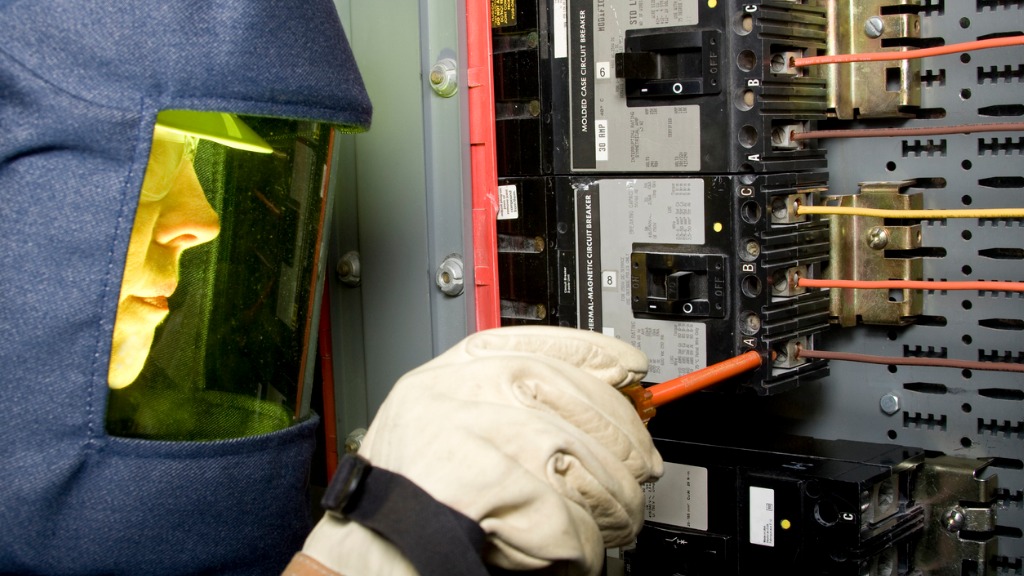Occupational Safety Solutions
Assess, Plan, Implement, Repeat
Reduced Accidents and Injuries
Improved Employee Morale & Productivity
Enhanced Reputation and Customer Confidence
Regulatory Compliance
Long-Term Sustainability
A robust safety program is essential for industrial facilities. It reduces accidents and injuries, improves employee morale, enhances reputation, ensures regulatory compliance, and promotes long-term sustainability. By prioritizing safety, companies can create a positive work environment, protect their assets, and minimize risks.
Discover end-to-end protection - from PPE to cybersecurity - when you rely on SMC's expertise.
Professional Services
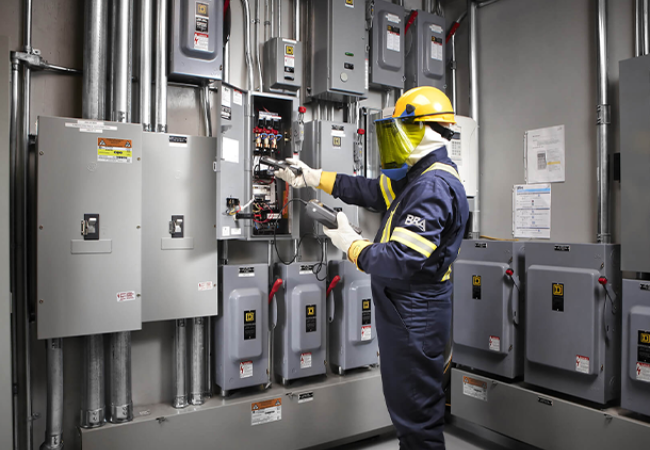
Arc Flash Assessments
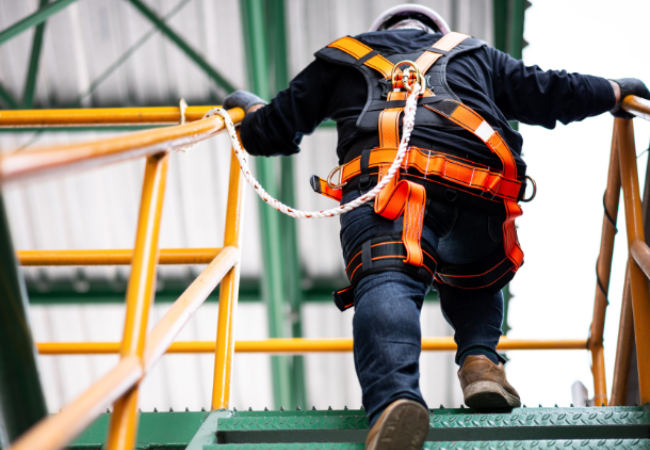
Fall Protection Services
.png?sfvrsn=2)
Indoor Air Quality Testing

Environmental Hazard Protection
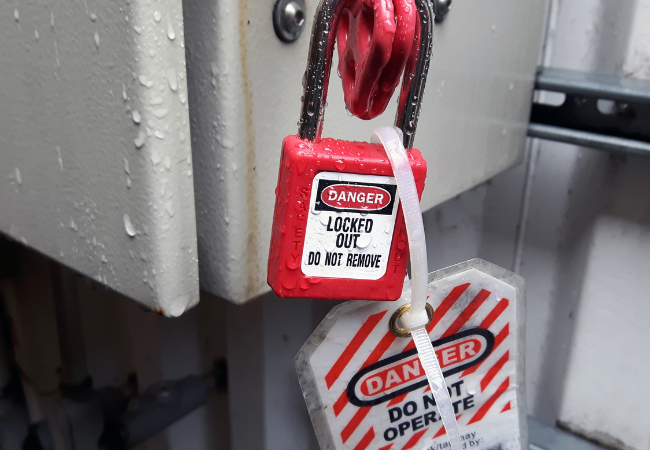
Lockout/Tagout Assessment

Annual Safety Management
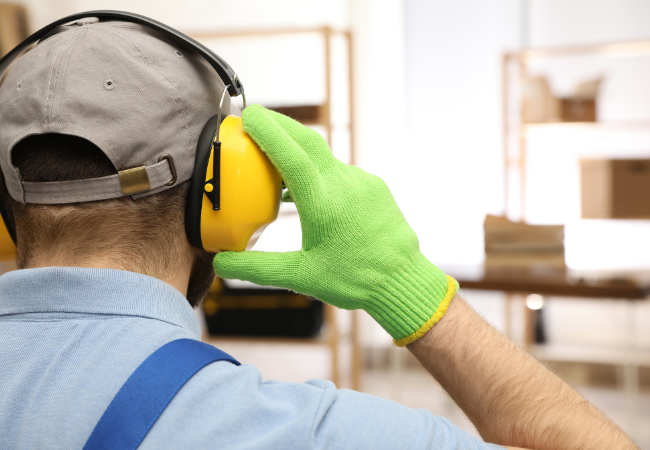
Sound Level Monitoring

Insulating Rubber Glove Testing
Maximize Safety, Sustainability, and Savings
Upcoming Training
All Training Options
CPR/AED and First Aid Training
Overview:
This course is designed to train participants to provide first aid, CPR, and use an automated external defibrillator (AED) in a safe, timely, and effective manner. Reflects science and education from the American Red Cross (ARC) and Emergency Cardiovascular Care (ECC).Objectives:
WE'LL COVER:- First aid basics
- Medical emergencies (i.e. choking)
- Injury emergencies
- Environmental emergencies
- Preventing illness and injury
- Adult CPR and AED use
Who Should Attend:
This course is designed for anyone with little or no medical training who needs a course certification card for their job, regulatory (e.g. OSHA), or other requirements, or anyone who wants to be prepared in an emergency setting.Prerequisites:
None.Hearing Conservation - On Site
Overview:
This Hearing Conservation training course is a 1 hour classroom type training. This training covers the OSHA required training criteria for workers involved in a hearing conservation program (CFR 1910.95 – Occupational Noise Exposure).
Objectives:
- Understand the applicable OSHA Standard (1910.95)
- What is a Hearing Conservation Program?
- Employer Requirements
- OSHA Training Requirements
- Understanding noise
- Types of hearing loss
- Statistics
- Minimizing noise exposure
- PPE and solutions
Who Should Attend:
All workers involved in a hearing conservation program.
OSHA requires this training to be conducted ANNUALLY.
Prerequisites:
None required.Forklift Safety - On Site
Overview:
This Forklift training course is a 2 hour classroom type training. This training covers the OSHA required training criteria for operating a forklift (CFR 1910.178 – Powered Industrial Trucks). Comprehension of material will be assessed immediately following the training with a brief multiple-choice quiz. Employer is responsible for assessing the practical skills of forklift operator.
Objectives:
- Understand the applicable OSHA Standard (1910.178)
- Understanding a Forklift (parts, controls, types)
- Power Sources
- Pros and Cons (IC or Electric)
- Pre-operation and Maintenance
- Traveling and Maneuvering
- Load Handling
- Refueling and Recharging
- Workplace HazardsG
Who Should Attend:
General industry forklift operators.Prerequisites:
None required.Fall Protection
Overview:
Available in SMC's classroom or on-site at customer's facility.This Fall Protection training course is a 2.5-hour classroom type training. This training covers the OSHA required training criteria for working at heights (CFR 1910.28 – Duty to Have Fall Protection and Fall Object Protection AND CFR 1910.140 – Personal Fall Protection Systems) as well as fall protection best practices and solutions. Applicable equipment is shown and demonstrated. Comprehension of material will be assessed immediately following the training with a brief multiple-choice quiz.
Objectives:
- Understand the applicable OSHA Standards (1910.28 and 1910.140)
- Common Citations
- Incident and Injury Statistics
- Identification and Assessment of Fall Hazards
- Types of Fall Protection Systems/Solutions
- Fall Distance Calculations
- Equipment Inspection
Who Should Attend:
General industry workers who work at heights 4 feet or greater.
Prerequisites:
None required.Confined Space Safety
Overview:
Available in SMC's classroom or on-site at customer's facility.This Confined Space safety training course is a 2.5-hour classroom type training. This training covers the OSHA-required training criteria for permit-required confined spaces (CFR 1910.146) and confined space best practices and solutions. Applicable equipment is shown and demonstrated. Comprehension of material will be assessed immediately following the training with a brief multiple-choice quiz.
Objectives:
- Understand the applicable OSHA Standard (1910.146)
- How to determine a confined space
- Permit required VS non-permit required
- Permit Required Program
- Hazard Assessment
- Equipment and Solutions
- Entry Permits
- Roles and Responsibilities
- Rescue and Emergency
Who Should Attend:
Any workers involved in a confined space safety program or anyone who enters into confined spaces.
Prerequisites:
None required.NFPA70E Arc Flash
Overview:
Available in SMC's classroom or on-site at customer's facility.
This Certified Arc Flash course guides the student through the NFPA70E in an interactive and understandable environment. Utilizing the NFPA70E, the student will gain a better understanding of OSHA regulations regarding electrical safety and how to implement them. The student will gain a better awareness of the electrical hazards and risks associated with their daily tasks. The student will learn how to select the proper electrical Personal Protective Equipment (PPE), how to implement safety programs and procedures and other methods to help minimize and mitigate the risks. The student will receive a NFPA70E Arc Flash Certificate, good for three (3) years, upon completion of this course.
SMC’s Arc Flash course is instructed by a certified Low Voltage/ High Voltage NFPA70E Arc Flash Instructor with 30 years’ experience in the electrical industry as a licensed Journeyman and Master electrician.
Objectives:
- Understand what arc flash is and what are the risks.
- Understand the relationship between OSHA, NFPA, IEEE, and other agencies and associations.
- Understand electrical safety procedures and documentation.
- Understand terminology used by the NFPA, OSHA and other agencies and associations.
- Learn how to navigate NFPA70E.
- Learn how to select the proper PPE and tools for the task.
- Learn how to determine electric shock and arc flash boundaries.
- Learn what is required for an electrically safe work environment.
- Learn what is required for an electrical safety program and how to recognize, mitigate and minimize risks.
Who Should Attend:
Individuals who: maintain and troubleshoot electrical equipment in the workplace, create and regulate electrical safety procedures, personnel new to electrical maintenance, anyone needing to update their electrical safety training, electrical workers, HVAC workers, production workers, safety managers, production managers, upper management, engineers or anyone who interacts with electricity in their daily tasks.
Prerequisites:
None required.Lock Out Tag Out Training
Overview:
Available in SMC's classroom or on-site at customer's facility.
This Lock Out Tag Out training course is a hands-on approach to understanding and complying with OSHA’s regulations. The student will examine and understand what OSHA’s regulations state and how to physically implement proper lock out tag out application of equipment. As part of the course, the student will be tasked with both a practical and written test to assess the student’s progress throughout the course.
SMC’s Lock Out Tag Out training course is instructed by certified Lock Out Tag Out Instructors with years’ of industry experience.
Objectives:
- Learn about OSHA’s procedure, training and annual auditing requirements
- Learn the differences between Authorized and Affected Persons
- Learn the definition of Lock Out
- Learn the definition of Tag Out
- Understand the type and magnitude of various energy sources
- Understand how to recognize and assess the different types of energy sources
- Understand the methods and means necessary for the isolation and control of energy sources
- Understand the proper procedures for group lock out tag out
- Understand the proper procedures for the removal of safety locks
- Test the ability to properly apply various lock out tag out equipment in different scenarios
Who Should Attend:
Anyone involved in the control of hazardous energy in the workplacePrerequisites:
None required.Arc Flash Safety Course
Overview:
Available in SMC classroom or on-site at customer's facilityThe three (3) hour Arc Flash Safety Course is intended for students who have achieved arc flash certification within the past three years. This course will update the student on any recent OSHA or NFPA70E changes that affect the electrically safe work practices of the student in the workplace. Utilizing the NFPA70E, the student will be refreshed on how to minimize and mitigate the risk of electric shock and arc flash that is potentially posed to the student in their daily work routine. The student will also be updated and reminded of the methods for properly choosing the appropriate Personal Protective Equipment (PPE) for the job, based on the risk assessed. The student will also be refreshed on how to implement safety programs and procedures and other methods to help minimize and mitigate the risks.
SMC’s Arc Flash Safety Course is instructed by a certified Low Voltage/ High Voltage NFPA70E Arc Flash Instructor with 30 years’ experience in the electrical industry as a licensed Journeyman and Master electrician.
Objectives:
- Understand what arc flash is and what are the risks.
- Understand electrical safety procedures and documentation.
- Understand terminology used by the NFPA, OSHA and other agencies and associations.
- Understand how to select the proper PPE and tools for the task.
- Understand how to determine electric shock and arc flash boundaries.
- Understand what is required for an electrically safe work environment.
- Understand what is required for an electrical safety program and how to recognize, mitigate and minimize risks.
Who Should Attend:
Individuals who: maintain and troubleshoot electrical equipment in the workplace, create and regulate electrical safety procedures, personnel new to electrical maintenance, anyone needing to update their electrical safety training, electrical workers, HVAC workers, production workers, safety managers, production managers, upper management, engineers or anyone who interacts with electricity in their daily tasks.
Prerequisites:
Arc Flash Certification within the past 3 yearsPartners
Contact us to request more information about any of our offerings.

Contact Us
Contact us to request more information about our offerings. *Required

